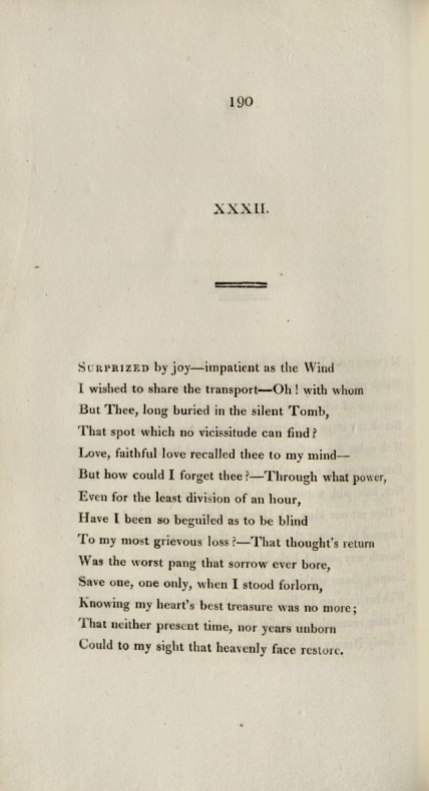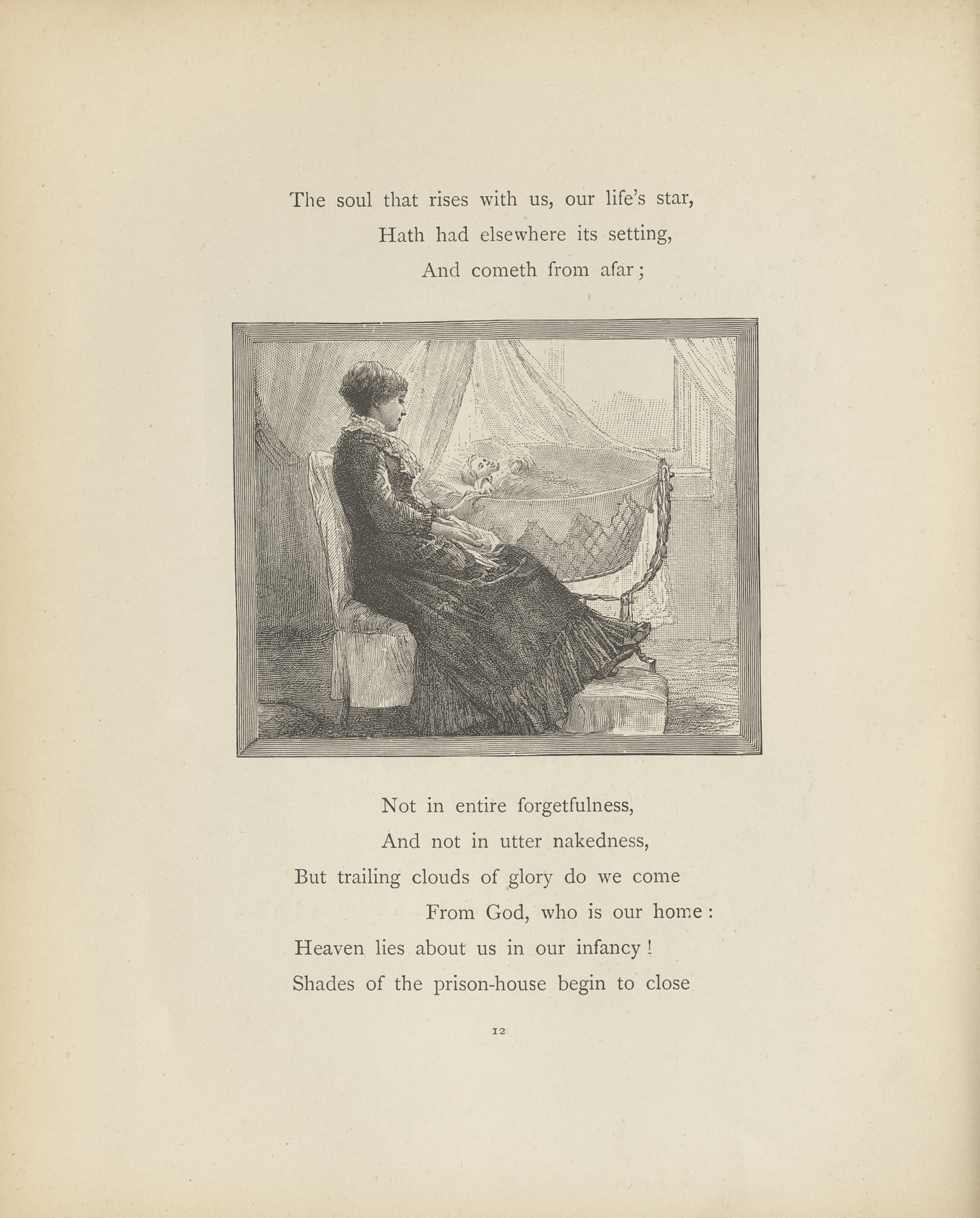Experience, loss, and memory are three main themes that run through William Wordsworth’s poetry, and often he implements these ideas through what he terms “spots of time.” These “spots” are potent memories that can help a person grow and learn something about life and loss. When Wordsworth reflected upon experiences that he had with nature or with other people, he often used them as inspiration for his poetry. His poems address a variety of topics—the landscape of the Lake District, the lives of the poor, his relationships with family, education, childhood, parenthood, friendship with other writers, the passing of loved ones, etc.—yet these topics are unified in that they draw on memories that shaped Wordsworth’s development as a person. Many of them have to do with his evolving understanding of death and mourning; however, they also emphasize the persistence of hope and “the faith that looks through death.”





This display case assembled by Lexa Porter, Petesi Feinga, and Taylore Bonds.